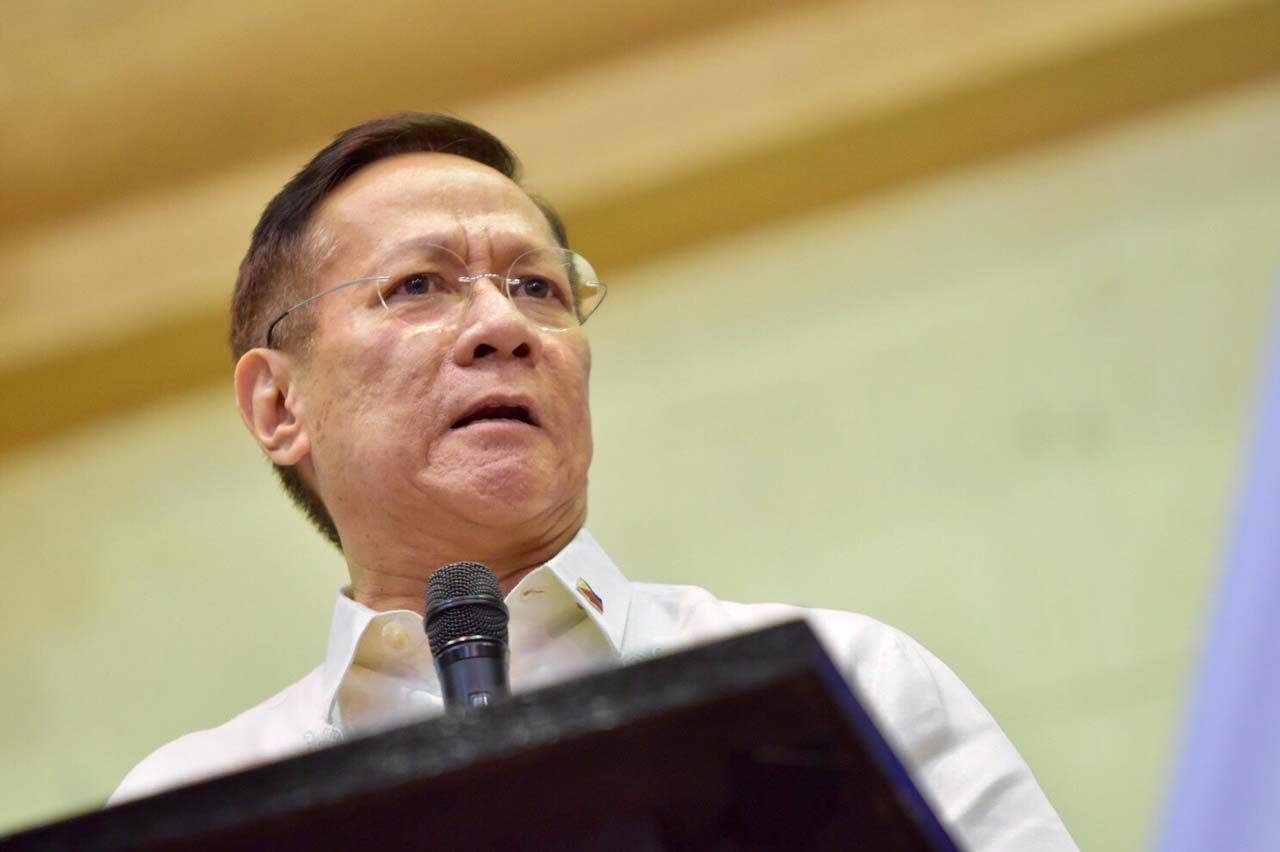SUMMARY
This is AI generated summarization, which may have errors. For context, always refer to the full article.

MANILA, Philippines – Health Secretary Francisco Duque III is determined to hold Sanofi Pasteur accountable now that its dengue vaccine has proven to pose risks for those who have been vaccinated but had not been previously infected by the virus.
The Department of Health (DOH) chief said on Thursday, December 7, that he is investigating whether or not the French pharmaceutical giant withheld crucial information regarding the risks of the Dengvaxia vaccine, which Sanofi itself revealed in an advisory last week.
Duque was asked during an interview on ANC’s Headstart if the Philippine government is considering the possibility of suing Sanofi. (READ: Sanofi can’t trace individuals at risk, but continues to monitor Dengvaxia recipients)
“Eventually that’s where it’s going to go… because it’s the court of law that’s going to decide insofar as the liability of Sanofi is concerned,” said Duque.
“If it’s found that they have withheld material information that would have changed the outcome of all of these problems and the [criticisms being hurled at the] decision-makers of the Department of Health in the previous administration, then they’re liable,” he added.
More than 700,000 Filipino grade-schoolers and another 15,000 cops, their dependents, along with walk-in civilians got the vaccine. (READ: Is it or is it not dengue?)
There had been strong opposition to the vaccination program when then-DOH chief Janette Garin launched it on April 4, 2016 under the presidency of Benigno Aquino III.
Public health experts found the whole process “rushed”, as it took only less than 6 months for the Philippine government to approve its use – from Aquino’s meeting with Sanofi’s executives in December 2015 to the arrival of Dengvaxia’s first doses in February 2016, to the vaccination program’s launch in April 2016. (READ: TIMELINE: Dengue immunization program for public school students)
Refund, indemnity fund eyed
Duque, who had already suspended the DOH’s school-based dengue vaccination program, said he plans to ask Sanofi for a refund for the vaccines.
The Philippine government already paid Sanofi P3.5 billion for 3 million doses of Dengvaxia, funded through sin tax revenues.
“I’m looking at it stage-wise, step-wise. I’ll probably talk to them. I’ll tell them we have P1.4 billion, 1.5 billion remaining unused vaccines. So balik ‘yan, bayaran ‘nyo kami (So return that, and pay us back),” said Duque.
He also would demand that Sanofi set up an indemnity fund for vaccinated children who would later be hospitalized due to dengue.
“There are cases now of children vaccinated and showing certain signs and symptoms. The symptoms are straddling between grade 2 and 3 types of dengue… But if that is proven, I’m going to ask them to set up an indemnity fund so the cost of hospitalization for these children now and in the future [will be covered],” said Duque. – Rappler.com
Add a comment
How does this make you feel?
There are no comments yet. Add your comment to start the conversation.